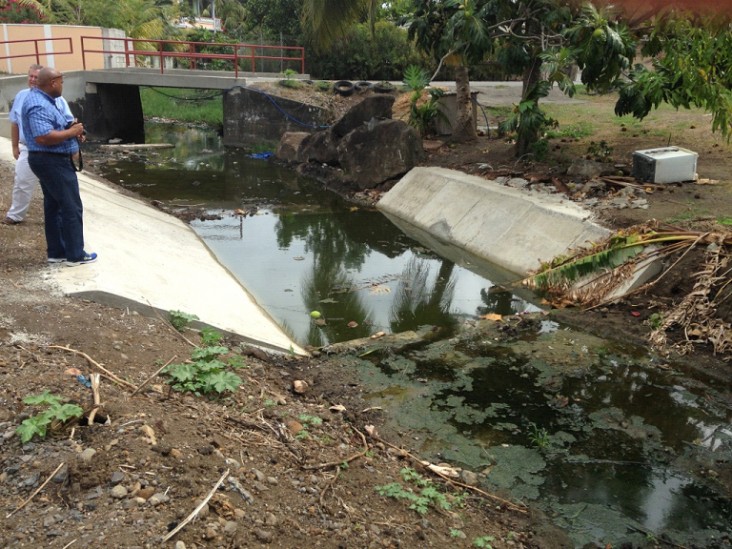
For Immediate Release
Through the United States Agency for International Development (USAID), the United States government provided assistance that helped mitigate the devastating impact of Tropical Storm Erika for one small community on the west coast of Dominica.
In September 2014, USAID implemented the US$332,000 Mero Drainage Improvement Works Risk Reduction and Climate Change Resilience initiative to minimize or avert flooding in the community of Mero. Rehabilitation work included the construction of roadside and hillside drains, as well as a silt trap to avert low-level flooding. Additionally, ravines and a deteriorated seawall were cleared and rehabilitated.
The strength of these improvements was evident after Erika passed and Mero residents were not displaced from their homes.
USAID Mission Director for the Eastern and Southern Caribbean Christopher Cushing stated: “We are pleased to be involved in the kind of work that not only improves lives, but actually helps to save them. As a result of these rehabilitation efforts in this small district, residents were spared from the widespread destruction that tragically affected several communities across Dominica.”
Due to recent climate change impacts, tropical storms, hurricanes, and other extreme weather events have intensified across the region. This has resulted in significant slope failures, erosion, landslides, and related coastal area damages to many vulnerable communities.
Cushing said the Mero initiative is part of USAID’s ongoing work within the Eastern Caribbean to enhance the region’s resilience to climate change impacts. He indicated that the Mission had earmarked more than $27 million in its 2015-2019 regional development cooperation strategy to further enhance the long-term capacity of OECS countries to respond to climate change.
USAID’s General Development Office Director Ted Lawrence noted: “It is gratifying to see that the Mission’s efforts to promote climate change adaptation were effective and we hope to see them replicated throughout the island.”







Comment
Make a general inquiry or suggest an improvement.